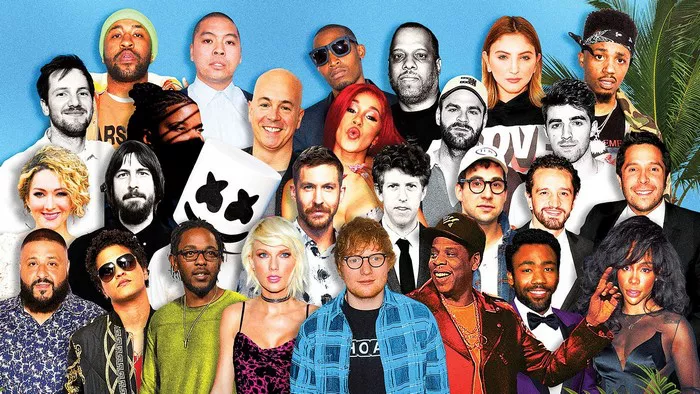In recent years, social media platforms have become a driving force in shaping the world of pop music. These online spaces have not only connected artists directly with their fans but have also provided a platform for viral hits and trendsetting. This article delves into the profound influence of social media on pop music, exploring how these platforms have transformed the industry, propelled emerging artists to stardom, and created a new era of instant fame and viral sensations.
The Rise of Viral Hits
Social media platforms have given rise to a new phenomenon in the music industry: viral hits. A viral hit refers to a song that quickly gains widespread popularity through online sharing and engagement. With platforms like TikTok, Instagram, and Twitter, songs can go viral almost overnight, propelled by user-generated content and challenges. These viral hits often bypass traditional marketing strategies, creating a direct connection between artists and their audience. They showcase the power of social media as a catalyst for launching careers and propelling songs to the top of music charts.
The Age of Instant Fame
Social media has transformed the concept of fame, offering artists a shortcut to stardom. Unlike the traditional path of signing with a record label and building a fanbase through mainstream media exposure, aspiring musicians can now gain recognition by creating and promoting their music online. Platforms like YouTube and SoundCloud have provided a democratized space for artists to showcase their work and connect directly with fans. This accessibility has created opportunities for talented individuals who may have gone unnoticed in the past, leading to the emergence of self-made stars in the pop music landscape.
The Power of Influencers
Social media influencers, individuals with a significant following on platforms such as Instagram or YouTube, have become major players in the music industry. These influencers can leverage their audience to support and promote music, enabling them to shape trends and generate buzz around specific songs or artists. When influencers endorse a particular track or artist, their dedicated followers often jump on the trend, driving up streams, sales, and overall popularity. The collaborations between musicians and influencers have proven to be mutually beneficial, as artists gain exposure to new audiences, and influencers enjoy exclusive content and potential partnerships.
Direct Fan Interaction
One of the defining features of social media is that it enables direct interaction between artists and their fans. Through platforms like Instagram Live, Twitter Q&A sessions, or YouTube comments, artists can engage in real-time conversations with their supporters. This direct communication fosters a sense of intimacy and closeness, allowing fans to feel more connected to their favorite artists. Artists can also gain valuable insights into their fans’ preferences and feedback, influencing their creative decisions and building a loyal and dedicated following.
The Power of Hashtags and Challenges
Hashtags and challenges have become integral tools for artists and fans to amplify their impact on social media platforms. By creating a catchy and unique hashtag, artists can encourage fans to engage with their content, share their music, or participate in challenges. These hashtags serve as virtual communities, bringing together fans from all corners of the world who share a common love for a particular artist or track. The collective participation in challenges and the use of hashtags further extend an artist’s reach, generate excitement, and create a buzz around their music.
Crowdsourcing Creativity
Social media has opened avenues for artists to engage their fans in the creative process. Musicians often seek input and feedback from their followers, involving them in decisions such as album artwork, songwriting, or even choosing a setlist for concerts. This crowdsourcing of creativity not only strengthens the bond between artists and fans but also creates a sense of ownership and investment in an artist’s journey. By involving fans in the decision-making process, artists can tap into the collective creativity and diverse perspectives of their followers, leading to more authentic and relatable content.
Real-Time Promotion and Releases
Social media has revolutionized music promotion and release strategies. Artists can build anticipation and hype around new projects through cryptic posts, teasers, and countdowns. The ability to share updates and behind-the-scenes moments in real-time creates an immersive experience for fans, keeping them engaged and excited. Additionally, social media platforms offer artists the flexibility to release music independently, bypassing the traditional gatekeepers of the industry. This newfound freedom allows artists to release music on their terms, connect directly with fans, and experiment with different approaches to music distribution.
Shifting Power Dynamics
The rise of social media has shifted power dynamics within the music industry. Artists are no longer solely dependent on record labels or industry executives to launch their careers. They have gained agency and control over their own narratives, using social media platforms as their megaphone. This newfound independence has given rise to more diverse voices and genres in pop music, challenging mainstream norms and promoting inclusivity. Social media has become a platform for artists to break barriers, redefine beauty standards, and amplify marginalized voices that may have otherwise gone unheard.
Conclusion
The influence of social media on the pop music industry is undeniable. It has propelled artists to stardom, facilitated the rise of viral hits, and transformed the way music is promoted and consumed. The power of social media lies in its ability to connect artists directly with their fans, democratize fame, and amplify trends. As technology continues to advance, and new platforms emerge, the impact of social media on pop music will undoubtedly continue to evolve, shaping the industry and providing new opportunities for artists to thrive in the digital age.

